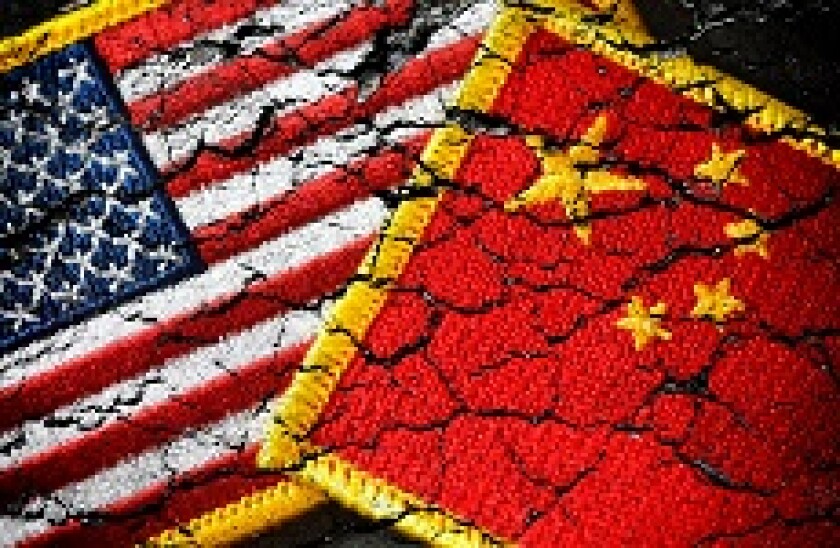After heavy selling on Monday, equity indices appeared to recover a little on Tuesday morning after US president Donald Trump hinted that he would discuss trade with Chinese counterpart Xi Jinping at the G20 summit next month.
Equity prices are bound to fluctuate when either utters something about trade.
Global supply chains have been built on strong links between the US and China. That investors desire a return to the harmonious and the benign is obvious and the recent rally in equities suggests they have a natural inclination to back this outcome — the status quo — rather than prepare for the disaster of an all-out trade war.
However, a trade war looks to be exactly where the two rivals are headed.
Even away from the minutiae of trade talks and tariffs, a fundamental rivalry between the two states, brewing for some time, is finally coming to the boil.
In his acclaimed 2017 book Destined for War Harvard professor Graham Allison argued that the US-China tension is inevitable, as has often been the case throughout history when a rising power challenges an established hegemony.
In more cases than not, two powers engage in military conflict. The challenge for China and the US is to avoid such a terrifying scenario.
Equity investors do not need to plan for Armageddon, after all, what would be the point? But they should be doing more to consider that a return to economic harmony is unlikely.
US secretary of state Mike Pompeo compared to China to the Soviet Union last Wednesday during a speech in London, in a warning to the UK over Chinese company Huawei and the debate over whether it should provide some of the infrastructure for the UK’s 5G mobile network.
He added that the challenge with China was different however, in that the country is “an authoritarian regime that’s integrated economically into the West in ways the Soviet Union never was.”
Pompeo was correct in highlighting the problems with declining US-China relations.
In the Cold War, the US and Soviet spheres of influence could operate almost independently of the other. This is not possible in the globally integrated economy of 2019, which is why equities have sold off as trade barriers between the China and the US have gone up.
With China set to overtake the US as the world's largest economy in the next few years, tensions are unlikely to subside.
Its ambitious programme of international economic expansion, perhaps best exemplified through its Belt and Road Initiative, will see it wield true global influence in a way that only the US has managed to do in the last few decades.
When combined with tensions over disputed territory in the South China Sea, competition to influence Asia and the growing trade deficit between the two countries, conflict of some sort may be, as Allison warns, inevitable.
Economic conflict must surely be the most likely course for the two powers for the foreseeable future. Tariffs may continue to be a weapon in a new Cold War and investors are likely going to have to get used to them.

